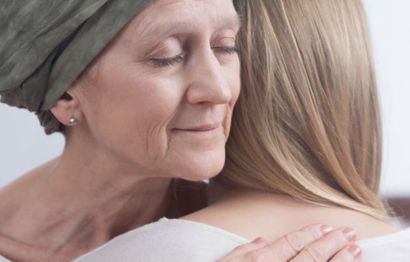Ovarian Cancer - What You Should Know
Ovarian cancer can be described as a mixture of cancers that develop in the ovaries, fallopian tubes, and peritoneum. Most of us know what the ovaries and fallopian tubes are, but peritoneum is a term people may be less familiar with. The peritoneum is a thin membrane that lines the abdominal cavity and covers many organs inside this cavity, including the uterus. Cancer develops when normal cells change and grow to form a tumour.

How does ovarian cancer affect your life?
Ovarian cancer, due to its nature, has a tremendous impact on women’s lives and those close to them. The following issues might bring on several new feelings and frustrations during and after your cancer treatment, and it is important that you do not deal with them alone.
Infertility
Fertility is affected by the removal of one or both ovaries, an oophorectomy, chemotherapy, and radiotherapy during the treatment of ovarian cancer. Infertility can be incredibly hard to deal with for patients diagnosed with ovarian cancer. It is crucial to have an open conversation with your partner, people in your close circle, or a trained specialist, to share how you feel. If you plan to have children, you should discuss this with your healthcare professional prior to starting treatment.
Cancer Care
At Mater Private Dublin’s Cancer Centre, you will be cared for by a group of highly experienced consultants, each specialising in a particular area of cancer diagnosis and treatment.
Learn more
Menopause
The removal of ovaries and radiotherapy treatment can bring on early menopause as your body lacks the necessary hormones previously produced by your ovaries. Menopause can cause a number of different symptoms, including:
- Hot flushes
- Dry skin
- Vaginal dryness
- Reduced sexual desire
- Night sweats
- Mood swings
- Poor concentration
- Osteoporosis (thinning bones)
If you experience early menopause due to your treatment, your healthcare professional will discuss possible treatment options that will be suitable for your needs.
Sexual desire
Cancer treatment can be very strenuous on your body, and its side effects, hormonal imbalances and stress can lead you to experience low sex drive as a result. This is very common for cancer patients, and you should not feel worried or ashamed if you experience it. Many women enter ‘survival mode’ when receiving cancer treatment and sexual activities are not on their priority list.
It might take time during and after your treatment to go back to the way things were before your cancer diagnosis. However, it is vital that you take your time and slowly build up your libido as your body recovers physically and mentally.
It is important that you discuss this topic with your partner, to explain your feelings and any limitations following your treatment. You should also discuss it with your healthcare professional. Although it might feel uncomfortable to discuss this subject with someone other than your partner, your healthcare professional will be able to provide you with the necessary resources and information, as they understand the struggles experienced by cancer survivors after treatment.







.jpg?sfvrsn=bc97231b_1)


.jpg?sfvrsn=4dccec64_1)
.jpg?sfvrsn=1c95d47a_1)
.jpg?sfvrsn=7f88ef54_1)
